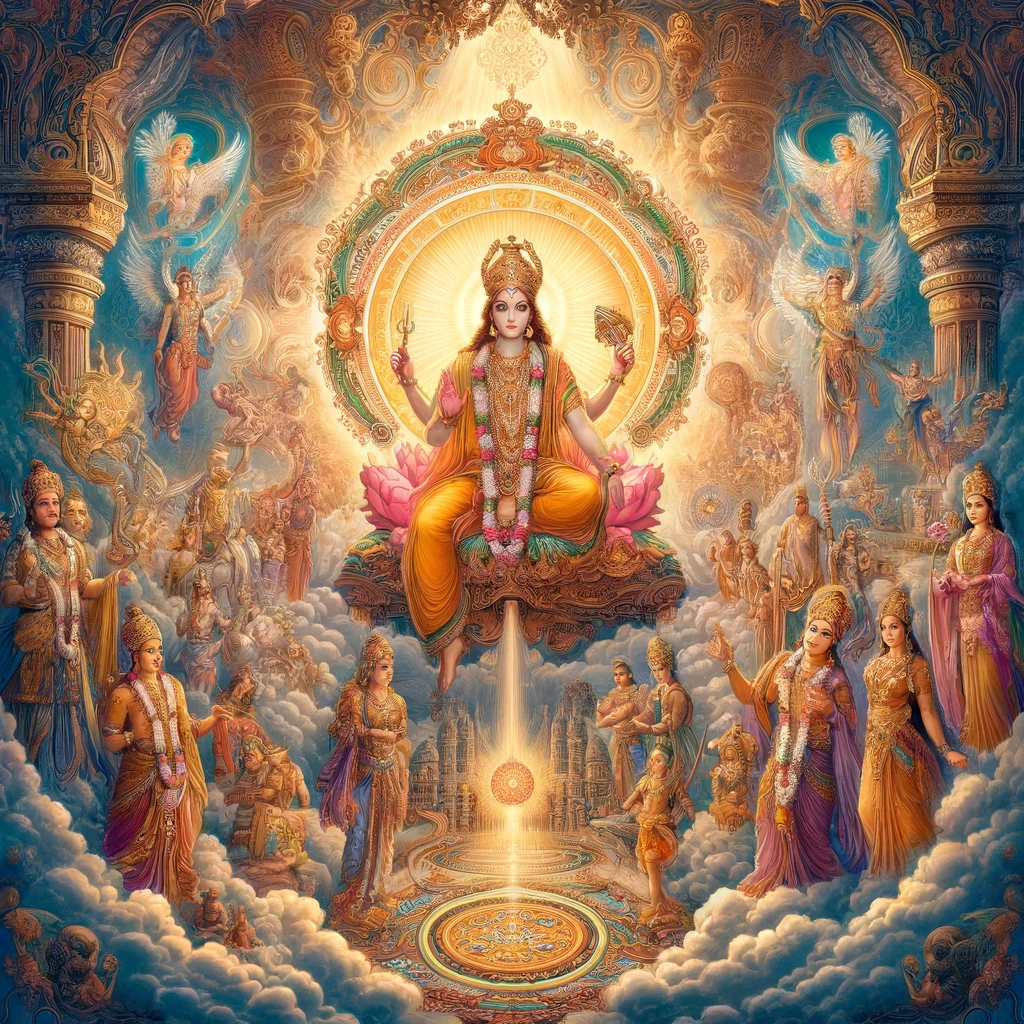ಪೂತಾತ್ಮಾ ಪರಮಾತ್ಮಾ ಚ ಮುಕ್ತಾನಾಂ ಪರಮಾ ಗತಿಃ |
ಅವ್ಯಯಃ ಪುರುಷಃ ಸಾಕ್ಷೀ ಕ್ಷೇತ್ರಜ್ಞೋಕ್ಷರ ಏವ ಚ || ೨ ||
pūtātmā paramātmā ca muktānāṃ paramā gatiḥ |
avyayaḥ puruṣha sākṣī kṣetrajñokṣara eva ca || 2 ||
pūtātmā
One who is untouched by hatredness and by three qualities (Satva, Raja, and Tamas) and who is holy in form is pūtātmā
Paramātmā
Does Atma means Body? NO! does it mean the mind filled with emotions? NO! because we think through our mind. Who controls the mind? That is soul. Who controls the soul? He is Paramātmā. The soul that is higher and elder to all souls and one that is higher than Lord Brahma and all deities is Paramātmā
.
Ca
ca means “and”.
muktānāṃ paramā gatiḥ
Lord Brahma’s lifespan is 100 kalpas. One kalpa means 31 thousand 104 thousand crore years (i.e., 31,104,000,000 years). i.e., Brahma’s lifespan is 3,110,400,000,000 years.
Human achievement or effort or realization or attainment is one Kalpa (31,104,000,000 years). Once the Soul achieves salvation, the soul along with the Chaturmuka Brahma’s who have reached salvation, will be there to guide the realized souls. The mother Goddess Lakshmi (sree tatva) guides Chaturmuka Brahma’s and all the souls that have reached salvation. The one who supports and guides even Goddess Lakshmi “The GOD” is muktānāṃ paramā gatiḥ.
avyayaḥ
The one who is present in everything. The God that is present in elephant or ant is one and the same. Here vyayaḥ means, one that diminishes or is destroyed. avyayaḥ means one who is present for eons and who do not diminish and ONE form of tenet or principle “The GOD”.
puruṣha
This is a very famous Characteristic. The essence of all Vedas is Purushasuktha. The saying’s in Purushasuktha and the effect is “the GOD’s” form puruṣha.
puruṣha means one who is eternal and bigger than everyone, and one who was present before the universe was created and after creation, and one who pervades universe and within everyone.
This word can be split into puru + ṣha. Here puru means perfect body, sha means who pervades. Hence, purusha means the one who is present in all perfect body, and who rules it. The absolute one who pervades within and outside the perfect body.
The one who is complete with knowledge, strength, energy, wealth, prowess, and brightness, and with these six qualities who controls this universe is purusha.
This word can be further split into Pu + ru + sha.
Pu, means who one who sanctifies everything. Ru, means one is present inside and who eliminates enemies, ignorance, and sorrows and who uplifts life. Sha, means who effortlessly fulfils all tasks. Hence, Purusha can be split and interpreted into various meanings.
sākṣī
sākṣī means who can see what has happened in the past, present, and future. We cannot hide in front of “The GOD”. We are naked in front of “The GOD”. We cannot hide and do anything without his knowledge. Without becoming naked in-front of “The GOD” he will not reveal himself (This is the essence of the story, when Lord Krishna stole clothes from Gopikastree’s when they were bathing, and they came naked in from of him). Hence, “The GOD” can see what has happened in the past, present, and future.
Here ākṣī means, one who have senses like us (i.e., sight, touch, smell, taste and hearing); and one who is the companion of the senses, and who uplifts us is sākṣī.
kṣetrajña
kṣetrajña means one who know the domain. Kshetra means the earth we live. The earth that is part of the Chaturmuka Brahma’s universe and the body that contains our soul is Keshtra. Hence, kṣetrajña means the one who bears this universe, the earth, and our body and who know the secret of all of them.
akṣhara
akṣhara means that which cannot be destroyed. This is not the letter, script, or syllable – these can be destroyed. What letter, script, or syllable that emanates from us is trapped in the sky, earth, and the universe and one just need to tune to these frequencies to hear team.
Besides, the one explained above, akṣhara has various other meaning. One that is spread everywhere (Omnipresent) is akṣhara.
Kshara means destruction, akṣhara means one that cannot be destroyed. Ksharana means one who pours, from eons the one who pours blessings on us is akṣhara.
akṣhara can be split into Aksha + Ra. Here Aksha means our senses, Ra means happy. Hence, akṣhara means one who is happily present in our senses. Here ‘A’ means not or not present. Hence “The GOD” is not or not present! Meaning, “The GOD” is not materialistic to be seen and he is free of any defects.


